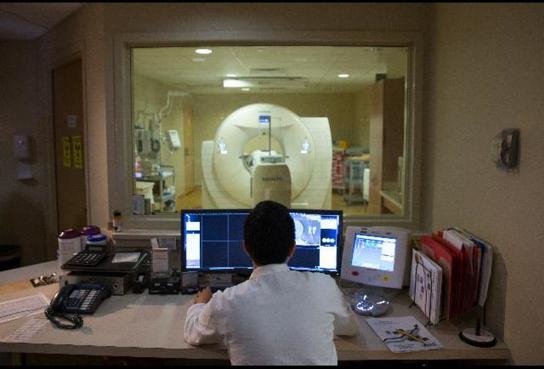Are High Out-Of-Pocket Costs Forcing Patients To Settle For Substandard Care? - Forbes
Peter Ubel writes for Forbes about the cost-benefit decisions doctors and patients must make in the face of rising out-of-pocket healthcare costs.

Peter Ubel writes for Forbes about the cost-benefit decisions doctors and patients must make in the face of rising out-of-pocket healthcare costs.

Photo: Dallas CTC
Mindfulness has become the new buzzword of late, touted by Fortune 500 companies, parents, the US military, and schools (just to name a few) as the answer to burnout, behavior problems, and anxiety. But the thing is – it’s more than a buzzword or the latest trend. On top of thousands of years of history, we now have thousands of pages of research proving that mindfulness actually is a solution to many of the woes of modern day society.

Photo: tribune.com.pk
For some people working out is an energy booster, but for others it’s more of a chore. And still for others it becomes a matter of fitting a workout into busy work/travel or family schedules. But whether you love it or hate it, getting in a daily shot of fitness is a requirement for staying healthy. Luckily these days there are a million ways to get your workout into a daily routine without ever getting bored. And even better most can be found online, and are either completely free or offer free trials so you can test the waters before committing.

January is over, which means for most of us those well-intentioned resolutions are out the window and we are back to our ever-prevailing habits. But at the same time, healthy exercise habits and weight loss are still top-of-mind and highly desired goals. And not just for us – universities and employers are also starting to demand to know the weight and fitness routines of their students and employees. While this may not be the best way to entice people to lose weight, the reality is that more than one-third of the adult US population is considered obese, which costs our healthcare system billions and billions of dollars each year.

Photo: Refe
The holiday season is a frantic time of year and it coincides with cold and flu season - add on top of that employees stretched thin due to work and family responsibilities, and self-care, like exercise, good nutrition, and sleep can fall by the wayside. This puts employee engagement at risk.
According to Forbes, healthy employees are essential to a high-functioning organization. Employees’ general awareness is directly related to success in the workplace, and sick employees (whether acutely ill or chronically ill) cannot focus as well on their work as healthy ones. Healthy employees who are aware of their responsibilities and can keep a clear head are better able to stay organized and to manage their stress. Encouraging and managing self-care to promote overall wellness culture in the workplace should be a primary objective, and your organization can promote a lifestyle that leads the way to better health for employees.